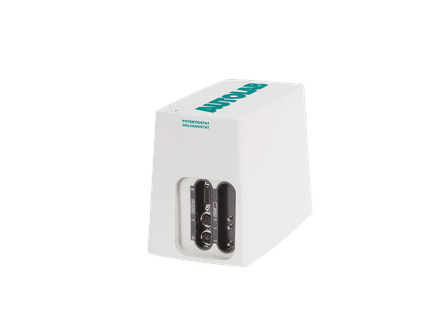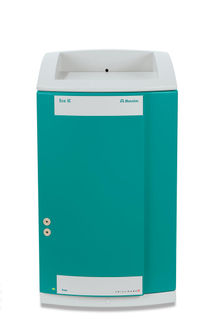To use all functions of this page, please activate cookies in your browser.
my.chemeurope.com
With an accout for my.chemeurope.com you can always see everything at a glance – and you can configure your own website and individual newsletter.
- My watch list
- My saved searches
- My saved topics
- My newsletter
Vladimir Prelog
Vladimir Prelog (July 23 1906 – January 7 1998) was a renowned chemist and Nobel Prize winner in chemistry. Prelog lived and worked in Prague, Zagreb and Zurich during his lifetime. Product highlight
Early yearsPrelog was born in Sarajevo, Bosnia and Herzegovina (at that time within the Austro-Hungarian Empire) to Croatian parents who were working there. In 1915, as a child, Prelog moved to Zagreb (Croatia) with his parents. Educated in Zagreb and Osijek, he graduated from the Czech Institute of Technology in Prague (Praha) in 1929, receiving a degree as a chemical engineer. His teacher was Emil Votoček, while his assistant Rudolf Lukeš introduced him to the world of organic chemistry. After gaining the Sc.D. in chemistry, he started to work in the private plant laboratory of G.J. Dríza in Prague, in charge of the production of rare chemicals that were not available on the market at that time. His pastime was spent in his own research, where he started investigating alkaloids from the cacao bark. Work in ZagrebIn 1935, he was invited to join the Technical Faculty (Tehnički Fakultet) of the University of Zagreb, where he took the post of lecturer in organic chemistry. He also taught students of chemical engineering. With the help of collaborators and students, and financially sponsored by the pharmaceutical factory "Kaštel" (currently Pliva), he started research of quinine and its compounds. Final works with the industry yielded a financially successful production of Streptazol, one of the first commercial sulfonamides. Scientific work here was crowned with the first synthesis of adamantane, a hydrocarbon with an unusual alicyclic structure, being isolated from Moravian oil fields. The results of Prelog's work have been published in the top European chemical literature and journals, while the organic chemistry developed in Zagreb at that time was well known and identifiable around the world. Work in ZurichIn 1941, he accepted the invitation of Lavoslav Ružička and left for Zurich, Switzerland, to the Swiss Federal Institute of Technology (ETH, or Eidgenössische Technische Hochschule). He was promoted, starting as private senior lecturer and ending up becoming professor. After Ružička's retirement in 1957, Prelog took over the organic chemistry laboratory where he expanded its activity to unusual areas: heterocyclic compounds, alkaloids, alicyclic compounds, and the isolation and study of biochemically active compounds found in smaller quantities in animal organisms. He also studied the structure of antibiotics and the stereochemistry of enzyme reactions. His research has contributed to the explanation of the structure of steroids, triterpene, quinine, strychnine, solanine and other alkaloids introducing so-called Prelog's regulation, which defines the conformational relations between reactants and products. Working with Robert Cahn and Christopher Ingold, he formulated the so-called CIP system, applied generally in stereometry. Thanks to him and Ružička, Zurich has become one of the most significant centers of modern organic chemistry. Nobel Prize winnerPrelog received the 1975 Nobel Prize for chemistry for his works in the field of natural compounds and stereochemistry, sharing it with the Australian/British research chemist John Cornforth. His scientific opus encompasses more than 400 works. Lecturer of distinctive style and eloquence, he trained many generations of chemists. In 1986, he became an honorary member of the Croatian Academy of Sciences and Arts. Private lifeAs a private person, he was the source of anecdotes about almost all eminent chemists all over the world. An intellectual with a wide cultural background, he never insisted on authority and was unused to confrontation. As an introspective person, ironic and suspicious of high social, political or religious aspirations, Prelog rarely allowed people insight into his inner life. He was one of the 109 Nobel Prize winners who signed the peace appeal for Croatia in 1991. Vladimir Prelog died in Zurich, (Switzerland), at the age of 91. An urn containing Prelog's ashes was ceremoniously interred at the Mirogoj cemetery in Zagreb on September 27 2001. References
Categories: Chemists | Nobel laureates in Chemistry |
|||||||||||||||||||||||||||||||||
| This article is licensed under the GNU Free Documentation License. It uses material from the Wikipedia article "Vladimir_Prelog". A list of authors is available in Wikipedia. | |||||||||||||||||||||||||||||||||







